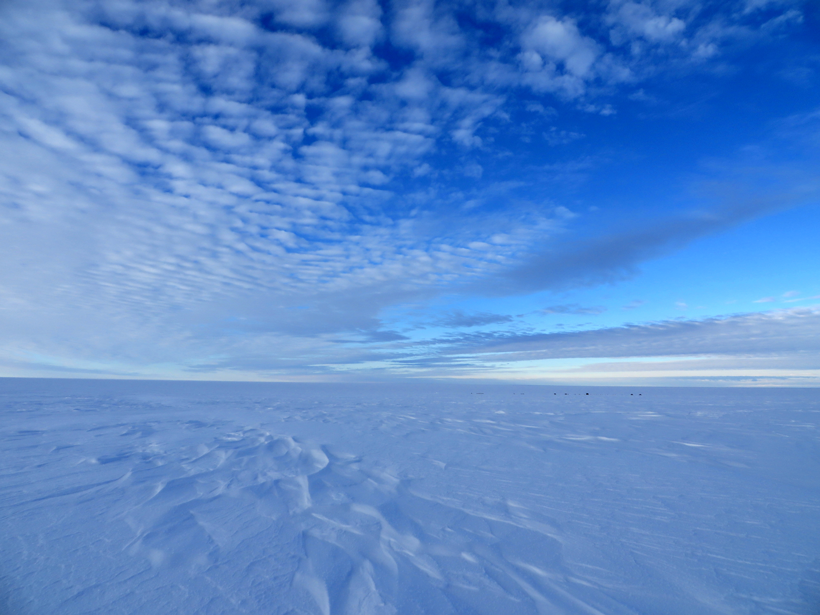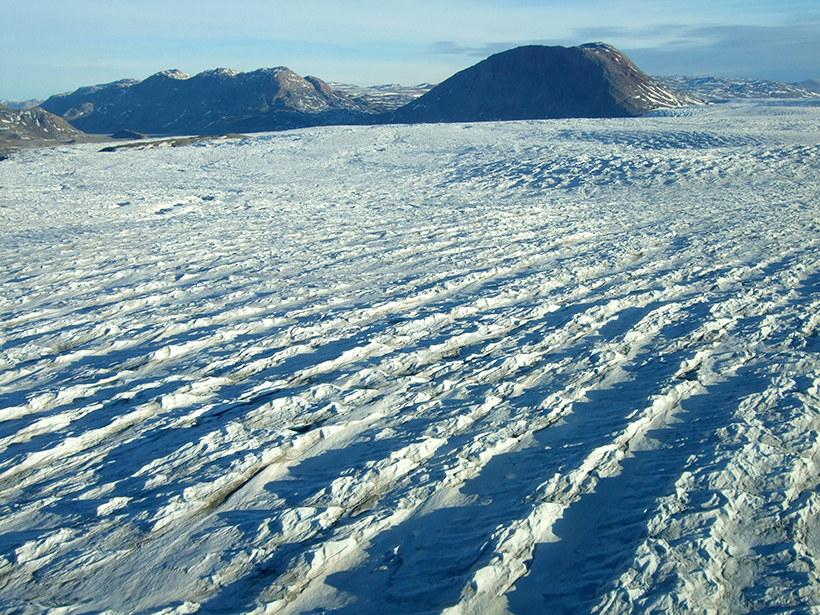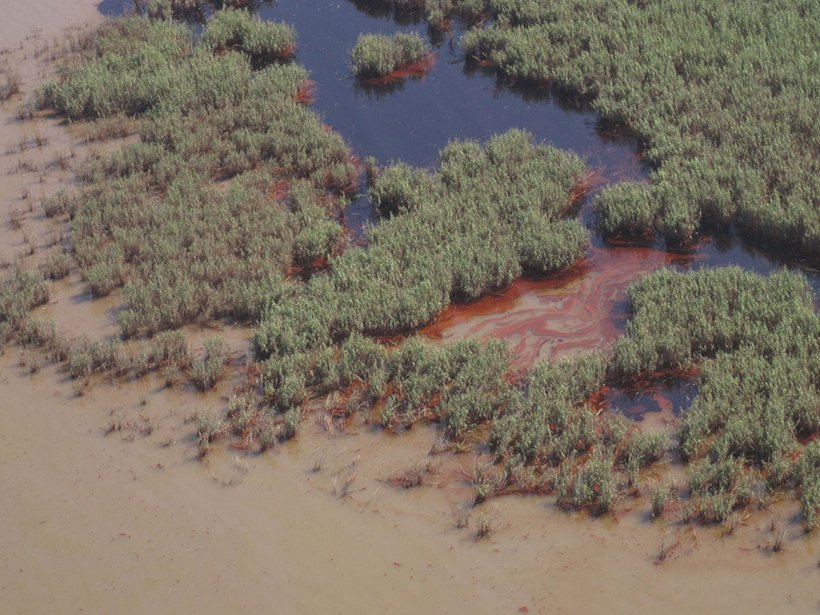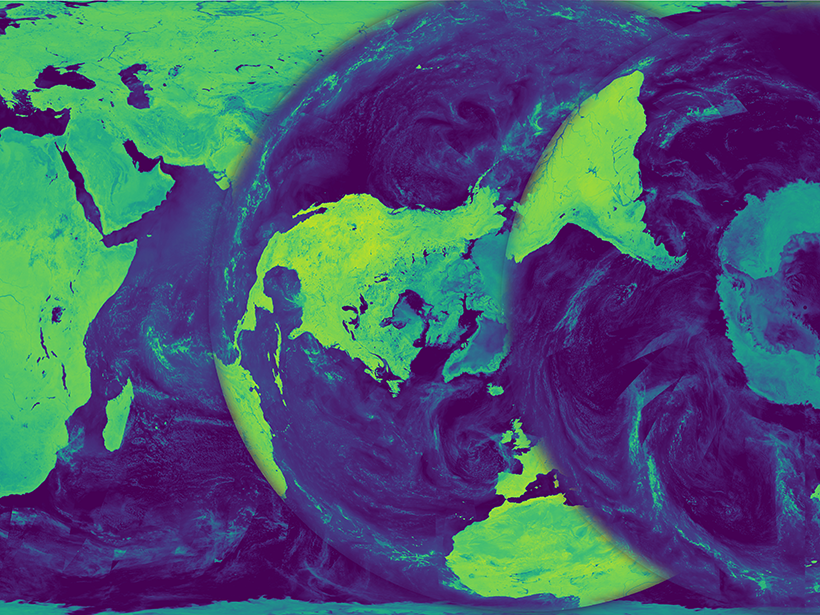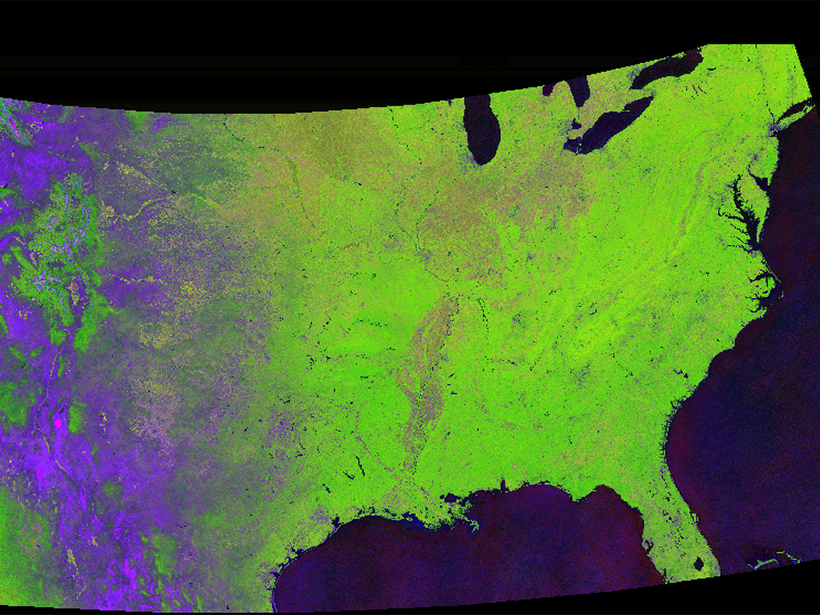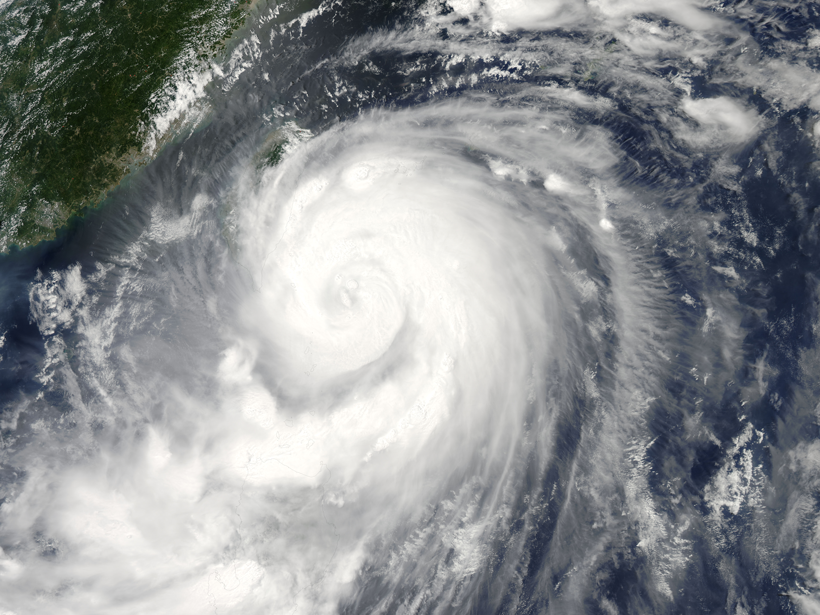European scientists use satellite sensors to detect light reflected off waves at the ocean's surface, which could help improve wave forecasts.
remote sensing
Kilimanjaro's Iconic Snows Mapped in Three Dimensions
New ground-penetrating radar measurements reveal the thickness and total ice volume of the mountain's Northern Ice Field.
A Comparison of Surface Thinning in West Antarctic Glaciers
An uninterrupted 24-year altimetry record of Amundsen Sea Embayment glaciers indicates the initiation and pace of thinning have been inconsistent across the region.
Using Landsat to Take the Long View on Greenland's Glaciers
A new web-based data portal gives scientists access to more than 40 years of satellite imagery, providing seasonal to long-term insights into outflows from Greenland's ice sheet.
Oil Residues Accelerate Coastal Wetland Losses
Coastal wetland loss after an oil spill can be more extensive than after a hurricane.
Bringing Earth's Microwave Maps into Sharper Focus
New processing capabilities improve the spatial resolution of satellite microwave data, enabling scientists to analyze trends in coastal regions and marginal ice zones.
Tracking Global Change with a Cloud-Based Living Atlas
With their feet in the cloud, Descartes Labs is pushing the limit of how we study the Earth with satellite images.
Reading Raindrops: Microphysics in Typhoon Matmo
Quantitative predictions about tropical storms require an understanding of even their smallest physical processes. A new study observes unusual microphysics in 2014's Typhoon Matmo.
First of Next Generation of U.S. Weather Satellites Hits the Sky
The novel spacecraft and three sister satellites to follow are expected to vastly improve storm forecasting.
Gulf Stream Destabilization Point Is on the Move
Westward migration of the wavelike Gulf Stream pattern could have big effects on ocean mixing and heat transport off the U.S. East Coast.



